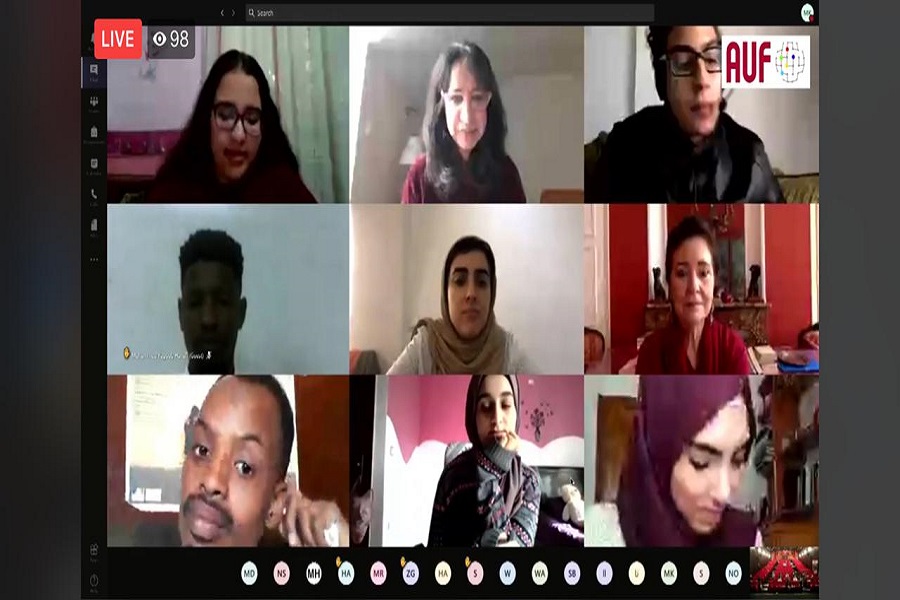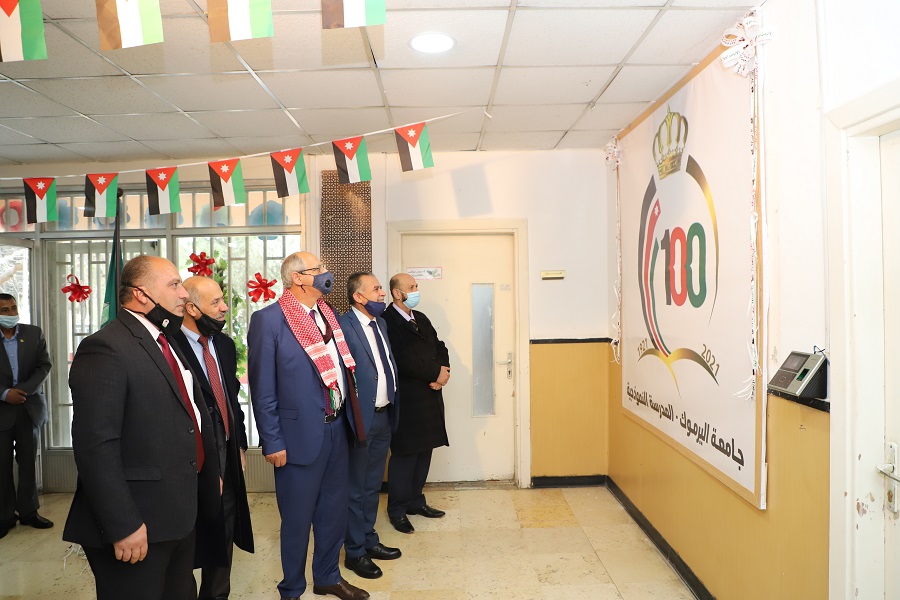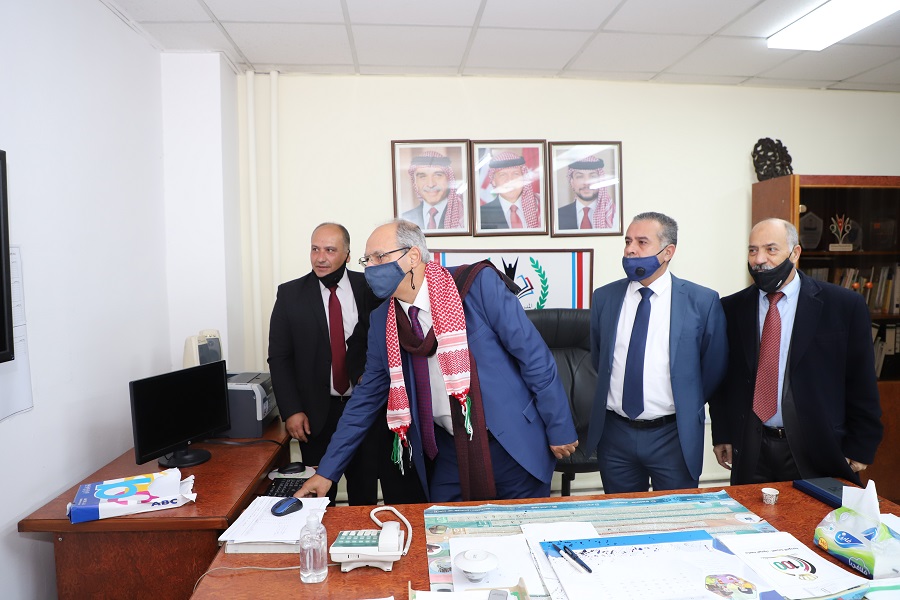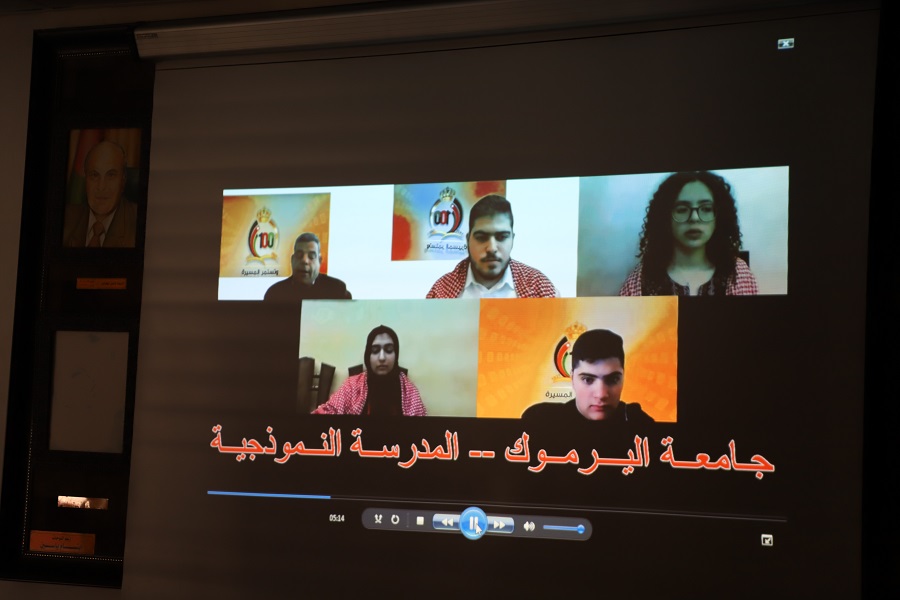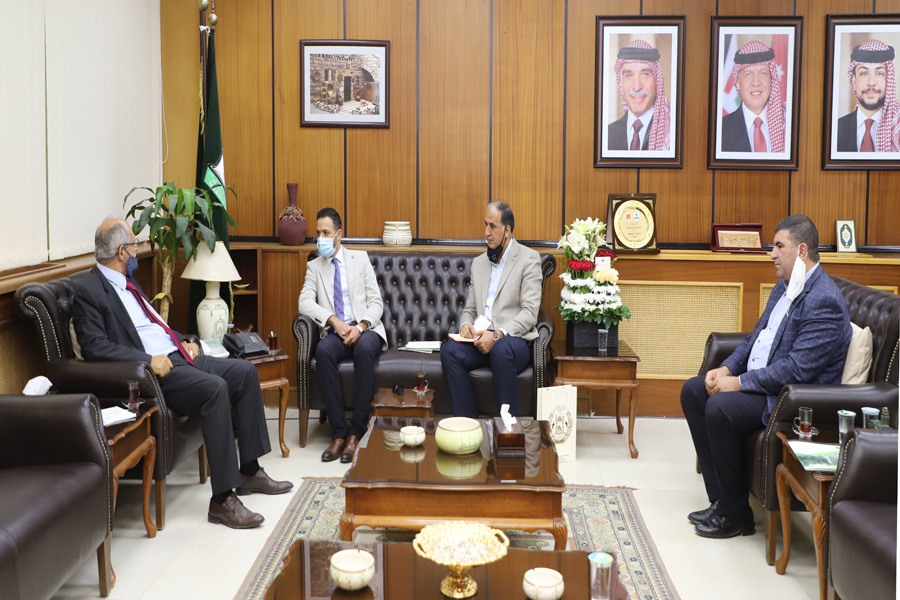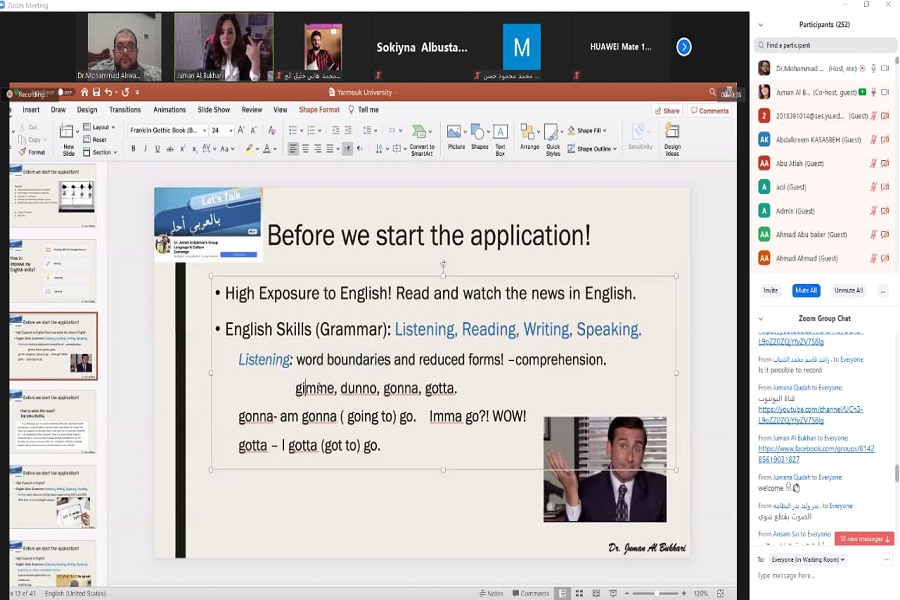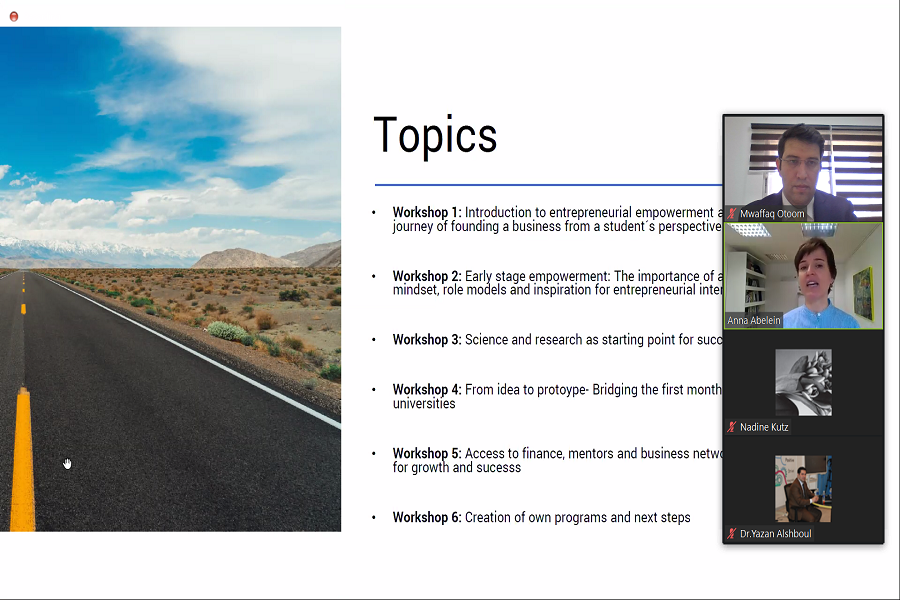

Forty students from Yarmouk University have participated in the 2019-2020 University Student Internship Program, a program that has been implemented by the American Chamber of Commerce in Jordan (AmCham-Jordan) with the support of the Public Affairs Section at the U.S. Embassy in Amman. The program aims at bridging the gap between academia and industry. It consists of two parts: the first part includes a set of soft-skills training courses such as Labor Laws, Communication Skills, Dealing with Difficult Personalities, Work Ethics, Dealing with Conflicts, Time and Attention Management, Working in Teams, CV Writing & Job Interview Skills, and Written Communication Skills. The second part of the program is a two-week profession-based internship, in which 40 companies are engaged in Corporate Social Responsibility by providing valuable professional experience to participating students.
Prof. Nabil Hailat, President of Yarmouk University, shed light on the benefits of this program to students. Prof. Hailat stated that this program is “in line with our efforts to enhance our students’ competitive value”. He mentioned that Yarmouk University’s strategic plan for the next five years 2021-2025 was developed to be student-centric, in terms of curricular and extra-curricular activities, making sure to include action items that are sustained and have impact on our society. Prof. Hailat added that “I put great focus on achieving these strategic goals through partnership with our friends inside and outside Jordan”.
Noor Alawneh, a Bachelor student in English Literature at Yarmouk University, participated in this program. She said “Being an English Language and Literature graduate, I was given the opportunity to intern at the AMIDEAST alongside an outstanding number of colleagues who have mentored and guided me. Every day at the AMIDEAST was a day to learn something new”. She continued “Undoubtedly, I acquired and developed a set of skills which have prepared and trained me for the workplace environment”.
Mohammad Amawi, a Bachelor student in Electric Power Engineering at Yarmouk University, has also been exposed to this experience. He expressed that “this internship helped me put into practice a lot of the engineering fundamentals I learned during my studies at Hijjawi Faculty for Engineering Technology, Yarmouk University and develop new skills”. He then commented “I now feel more comfortable working in a diverse environment with people from all walks of life and of course this has had and will always have a powerful impact on my career life”.
The 2019-2020 program was concluded with a virtual forum under the Patronage of Minister of Labor and Minister of State for Investment Affairs, H.E. Dr. Maen Al Qatamine, during which AmCham-Jordan announced the launch of the 2021 program introducing a new job search tool, the AmCham-Jordan Internships & Jobs Matchmaking Portal.


